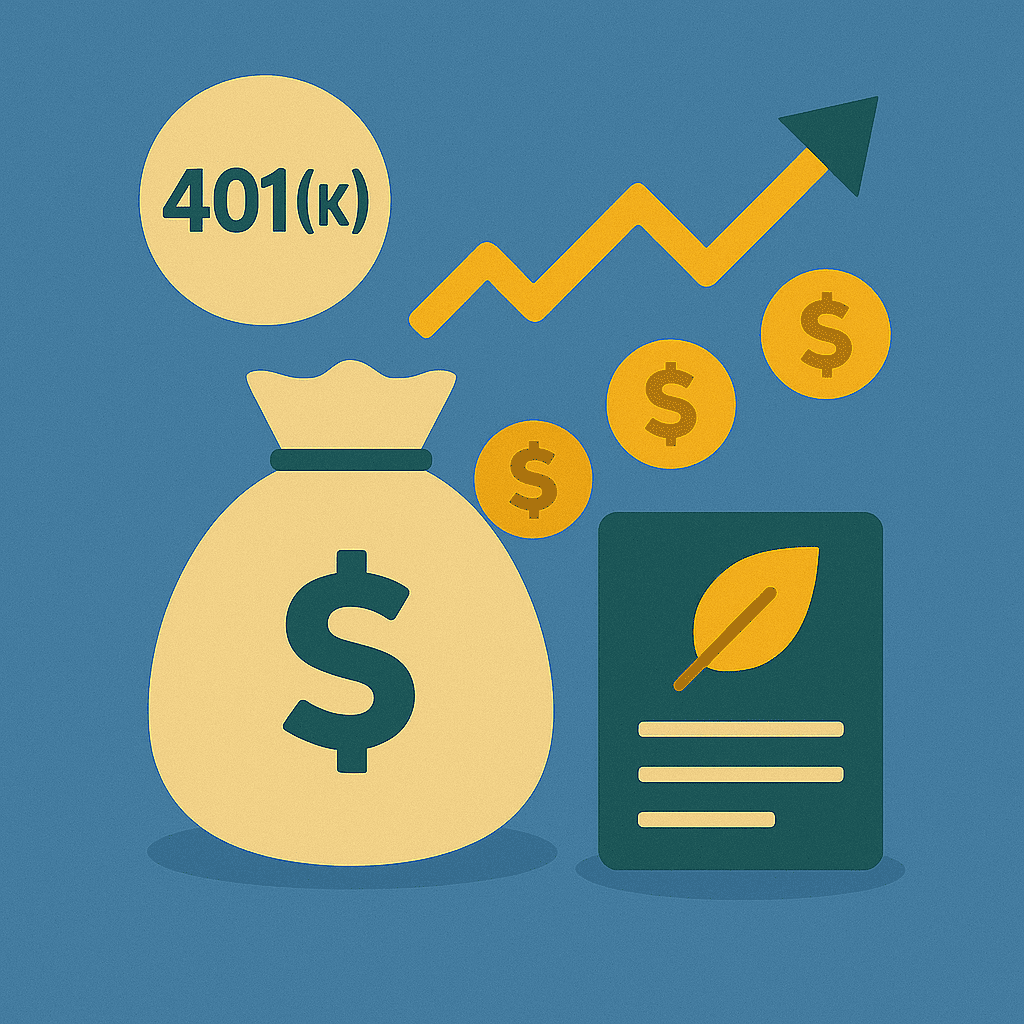- Home
- ›
- Investing
Investment Calculators & Wealth Building Guides
Free investment calculators and expert guides to calculate compound interest, plan retirement goals, and build long-term wealth through smart investing.
Investment & Savings Calculators
Calculate compound interest, plan investment goals, and track wealth-building progress with our investment tools.
Investment Calculator
Estimate investment returns and portfolio growth for stocks, mutual funds, and index funds.
Compound Interest Calculator
Calculate how your investments grow over time with compound interest and regular contributions.
401(k) Calculator
Plan your 401(k) retirement savings with employer matching and contribution optimization.
Retirement Calculator
Plan your retirement savings with growth projections, withdrawal strategies, and income planning.
FIRE Calculator
Calculate when you can retire early with FIRE methodology. Determine your path to financial independence.
Annuity Payout Calculator
Calculate monthly annuity payments, compare lump sum vs annuity options, and plan retirement income.
Quick Investment Growth Estimate
See how your investments could grow with compound interest
How Our Investment Calculators Work
Enter Investment Details
Input your initial amount, expected returns, and investment timeline.
Add Regular Contributions
Include monthly or annual contributions to maximize growth potential.
View Growth Projections
See detailed breakdowns of principal, returns, and total growth over time.
Plan Your Strategy
Use results to set realistic goals and optimize your investment approach.
Smart Investment & Savings Tips
Getting Started
- Start investing as early as possible to maximize compound growth
- Build an emergency fund before investing substantial amounts
- Invest consistently, even if amounts are small initially
- Take advantage of employer 401(k) matching if available
Long-term Strategy
- Diversify investments across different asset classes
- Stay invested during market volatility for long-term gains
- Review and rebalance your portfolio annually
- Consider low-cost index funds for broad market exposure
Wealth Building & Investment Guides
 Master proven wealth creation strategies, choose the best long-term investments, and build lasting financial independence.
Master proven wealth creation strategies, choose the best long-term investments, and build lasting financial independence. Optimize contributions, maximize employer matching, and master advanced 401(k) strategies for retirement wealth building.
Optimize contributions, maximize employer matching, and master advanced 401(k) strategies for retirement wealth building. Calculate your retirement number with the 4% rule, savings benchmarks by age, and strategies for early retirement planning.
Calculate your retirement number with the 4% rule, savings benchmarks by age, and strategies for early retirement planning. Practical tips, budgeting strategies, and everyday hacks to save more money and pay off debt quickly.
Practical tips, budgeting strategies, and everyday hacks to save more money and pay off debt quickly. See how saving or investing $100 a month can grow into $100,000 and beyond with compound interest. Learn the math, strategies, and best accounts.
See how saving or investing $100 a month can grow into $100,000 and beyond with compound interest. Learn the math, strategies, and best accounts.Frequently Asked Questions
How does compound interest work?
Compound interest means you earn returns on both your original investment and previously earned returns. This creates exponential growth over time, making it one of the most powerful wealth-building tools.
What's a realistic return rate for investments?
Historical stock market averages suggest 7-10% annual returns over long periods, though individual results vary. Conservative estimates often use 6-8% for planning purposes.
How much should I invest each month?
A common recommendation is 10-20% of your income, but the right amount depends on your financial goals, timeline, and current financial situation. Start with what you can afford consistently.
When should I start investing?
The best time to start investing is as early as possible to maximize the power of compound interest. Even small amounts invested early can grow significantly over decades.
What's the difference between saving and investing?
Saving typically involves low-risk, low-return accounts for short-term goals and emergencies. Investing involves higher risk but potential for greater returns over longer time periods.
How accurate are investment calculators?
Investment calculators provide estimates based on assumptions about returns and contributions. Actual results vary due to market volatility, but they're valuable for planning and understanding potential outcomes.
Should I invest if I have debt?
Generally, pay off high-interest debt first (credit cards), but consider investing while paying low-interest debt (mortgages). The decision depends on interest rates and your risk tolerance.
What's the rule of 72?
The rule of 72 estimates how long it takes investments to double. Divide 72 by your expected annual return rate. For example, at 8% returns, investments double approximately every 9 years (72÷8=9).
Related Financial Calculators
Complete your financial planning with these additional tools:
About Our Investment Calculators
Our comprehensive suite of free investment and savings calculators empowers you to make informed financial decisions and plan for long-term wealth building and retirement planning. Whether you're starting your first investment portfolio, calculating 401k contributions, planning for early retirement, or setting FIRE (Financial Independence Retire Early) goals, our financial planning tools provide accurate projections based on compound interest principles and investment growth fundamentals.
The compound interest calculator demonstrates how regular monthly contributions and time horizon can dramatically multiply your wealth through the power of compounding returns. By showing detailed year-by-year growth projections and investment performance analysis, our tools help you understand the true potential of consistent dollar-cost averaging and long-term investing strategies.
Whether you're saving for a house down payment, building a 6-month emergency fund, planning early retirement through index fund investing, or maximizing your 401k employer match, our investment calculators help you set realistic financial goals and track wealth-building progress. You can experiment with different monthly contribution amounts, investment time horizons, and expected annual returns (typically 7-10% for stock market investments) to find the optimal investment strategy that aligns with your risk tolerance and financial situation.
All calculations use standard financial formulas for compound annual growth rate (CAGR), present value, and future value calculations, ensuring accuracy and reliability for your investment planning and retirement projections. While these wealth-building tools provide excellent estimates for financial planning purposes, remember that actual investment returns vary due to market volatility, economic conditions, and asset allocation decisions. Past performance doesn't guarantee future results, and we recommend consulting with a financial advisor for personalized investment advice.
2025 Investment Market Overview
Current Investment Climate
The 2025 investment landscape offers both opportunities and challenges, with technology innovation driving growth while economic uncertainties require careful portfolio management and long-term thinking.
- • Diversification remains crucial for risk management
- • Low-cost index funds continue gaining popularity
- • Dollar-cost averaging helps navigate volatility
Smart Investment Trends
Successful investors in 2025 focus on long-term goals, maintain consistent contributions regardless of market conditions, and take advantage of tax-advantaged accounts like 401(k)s and IRAs.
- • Maximize employer 401(k) matching first
- • Consider Roth IRAs for tax-free growth
- • Automate investments to stay consistent
Ready to Start Building Wealth?
Get started with our free investment calculators and see how compound interest can work for you.